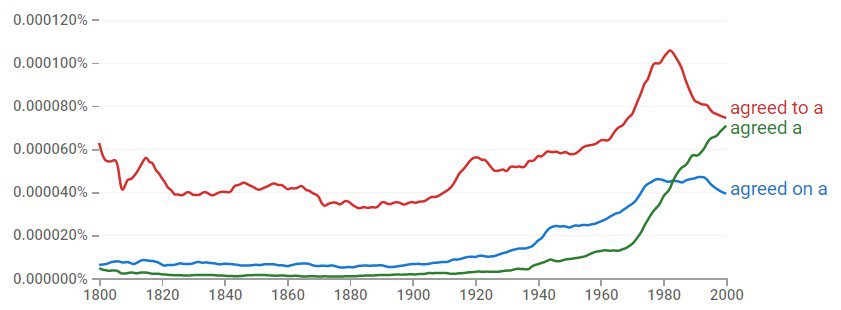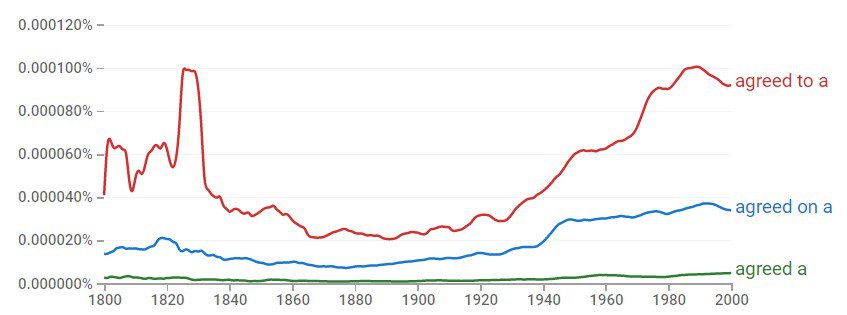Where the verb agree means to come to an agreement (on something), Americans and Canadians make it intransitive, meaning it takes a preposition, usually on or to, when it has an object. For instance, opposing parties might agree on a compromise. Outside North America, especially in the U.K., the verb is often transitive, meaning the preposition is unnecessary. Opposing parties might agree a compromise.
The transitive agree has existed in British English for centuries, but it has only recently become common enough to rival the intransitive agree (and in current U.K. newswriting, the transitive one is actually far more common). The below ngram, which graphs occurrence of the phrases agreed to a, agreed on a, and agreed a in a large number of British books and periodicals published from 1800 to 2019, shows the transitive agree rising rapidly in the second half of the 20th century:

Here’s the corresponding graph for American English:

This would suggest that the transitive agree is rare in the U.S., or at least was rare up to 2000. Anecdotally, as Americans, we have encountered it with increasing frequency in U.S. media over the last year or so (which is the impetus for this post), but this might only be an imagined trend.
Based on web-published news stories from the past month (today being January 7, 2013), the ratio of agreed to a to agreed a is about 30:1 in the U.S and Canada. Agreed to a also prevails in Australia and New Zealand, but by a much smaller 2:1 ratio. The U.K. results are drastically different; agreed a is about ten times as common as agreed to a (this covers more than 35 U.K. news publications and websites, including big ones such as the Guardian, the Telegraph, the Independent, and the BBC).
Examples
In these examples from the U.S. and Canada, agree is intransitive:
The firefighter’s union is the only employee group that failed to agree to a two-year salary freeze. [CBC]
House and Senate negotiators agreed on a final version of a key defense-policy bill on Tuesday. [Wall Street Journal]
The Los Angeles Dodgers reached a record contract Saturday with starter Zack Greinke, agreeing to a six-year, $147 million deal. [New York Times]
And in these examples from outside North America, agree is transitive:
Basildon Borough Council’s cabinet agreed a masterplan for the town’s redevelopment over the next five years. [BBC]
What does it take to get them back to the table to discuss and agree a long-term deferment of €40 billion of our bank recap debt? [Irish Times]
On the downside, countries did not determine a timeline for agreeing a new deal by 2015. [The Age]

Comments are closed.